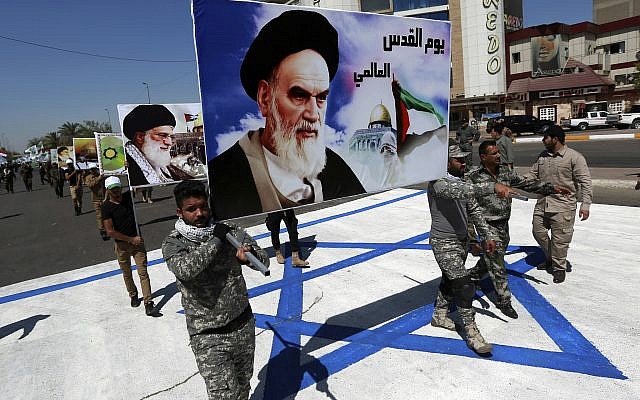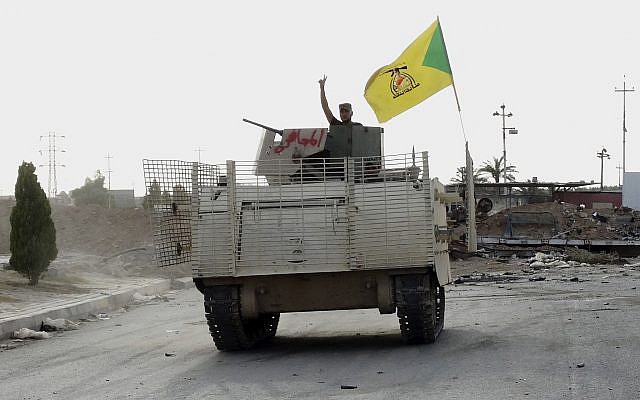Responding to report Tehran has provided Shiite proxies with ballistic missiles that can reach Israel, Avigdor Liberman says: ‘We will handle any Iranian threat, no matter where’

Defense Minister Avigdor Liberman appeared to imply Monday that Israel could hit Iranian targets in Iraq, days after the Reuters news agency reported that Tehran was providing ballistic missiles and training to loyalist militias there.
“As for the threat from Iran, we are not limiting ourselves to Syria. That should be clear,” Liberman told a conference organized by Hadashot TV news.
Asked specifically if this included Iraq, the defense minister answered: “I’m saying we will handle any Iranian threat, no matter where it comes from. We are maintaining the right to act… and any threat or anything else that comes up is dealt with.”
The Friday report, citing several unnamed Iranian, Iraqi and Western officials, stated that several dozen rockets capable of hitting Israel and Tehran’s Sunni rival Saudi Arabia had been deployed with Iran’s Shiite proxies in Iraq.
It added that Iran was working to provide its allies with missile manufacturing facilities, and has been training militia members in operating the new weapons.
The deployment is meant to improve Iran’s ability to retaliate against any Western or Arab attacks on its territory, as well as to expand its options for attacking opponents in the region, Reuters said.
Iran denied the report. “The lie disseminated by some media on shipment of Iran-made missiles to Iraq is totally irrelevant and unfounded,” Iranian Foreign Ministry spokesman Bahram Qasemi said.
“Such news comes merely to cause panic among countries in the region and is in line with their policy to spread Iranophobia,” Qasemi said.
Iran has long used its Shiite proxies and allies in Iraq to hit back at its opponents. According to transcripts of interrogations in 2007 of a top Shiite military and religious figure in Iraq declassified earlier this year, Iran was heavily involved in Iraqi Shiite militias’ attacks on US troops in the years following the American invasion of the country in 2003.

Qais al-Khazali, who now heads the Asaib Ahl al-Haq militia, which won 15 parliamentary seats in Iraq’s May elections, detailed the scale of Iranian involvement in the country in the 2007 interrogation, the Wall Street Journal reported Thursday, citing recently declassified documents.
An airstrike on an Iraqi Shiite militia near the town of al-Bukamal on the Iraq-Syria border in June was blamed by some on Israel.
As reported by The Times of Israel
